The new Center for Austronesia Social and Cultural Development is officially open
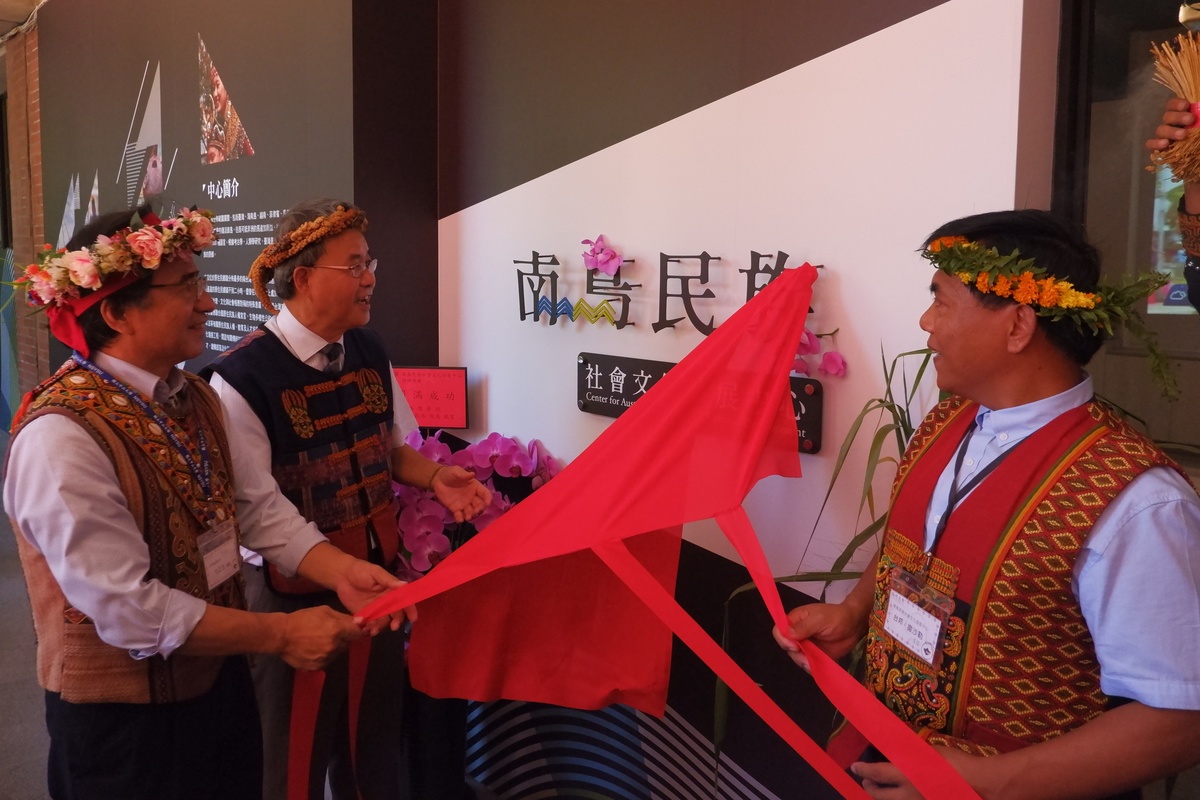
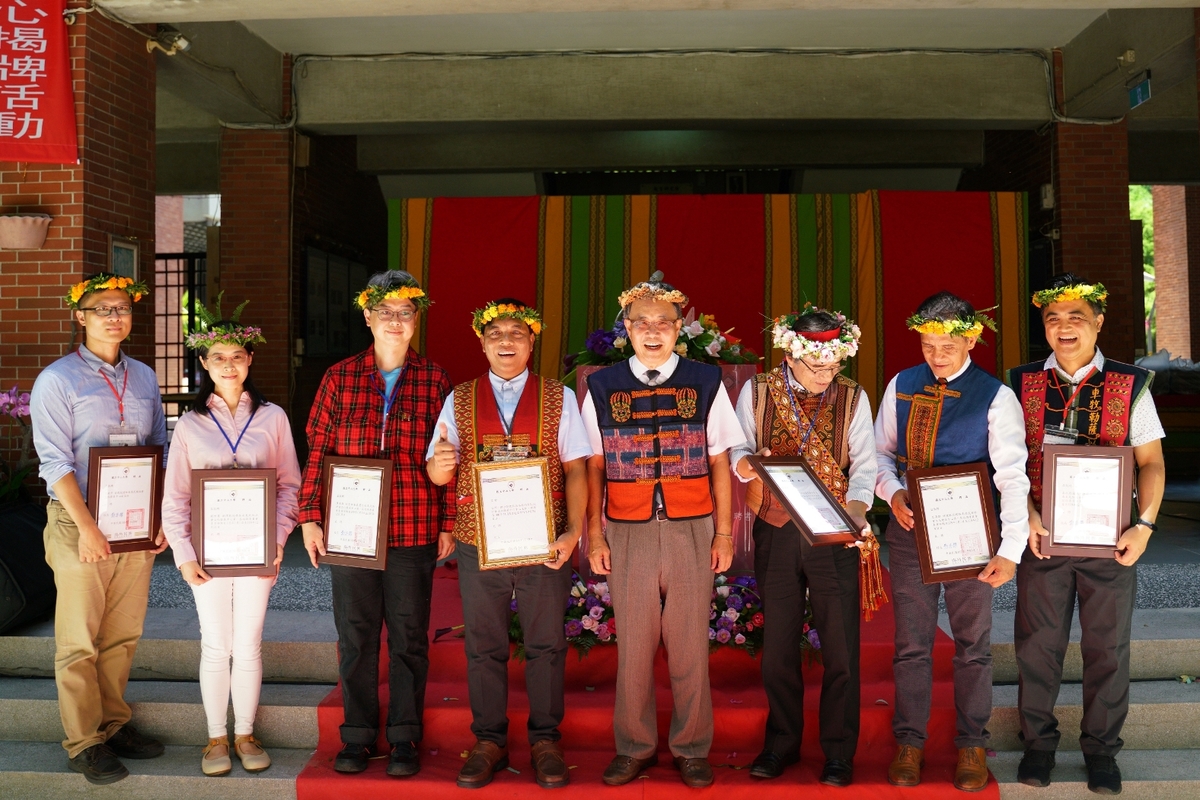
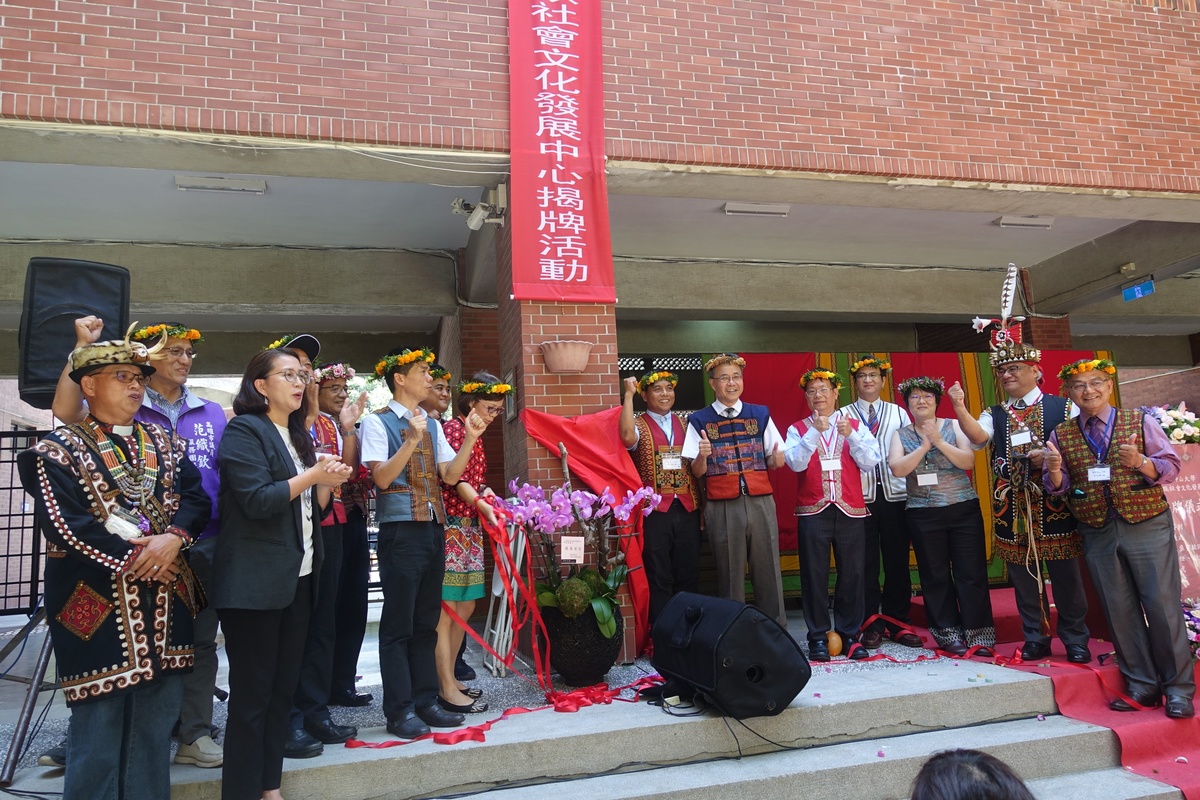
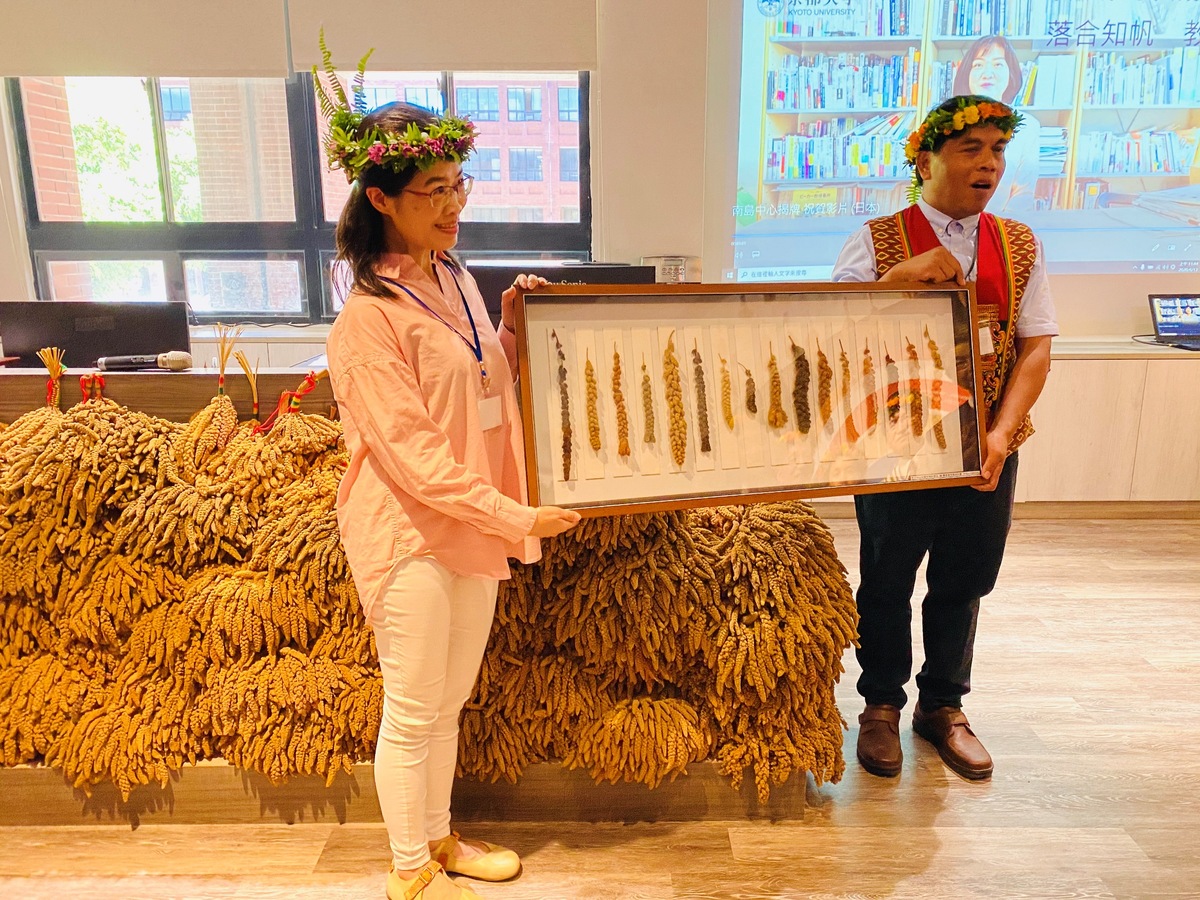
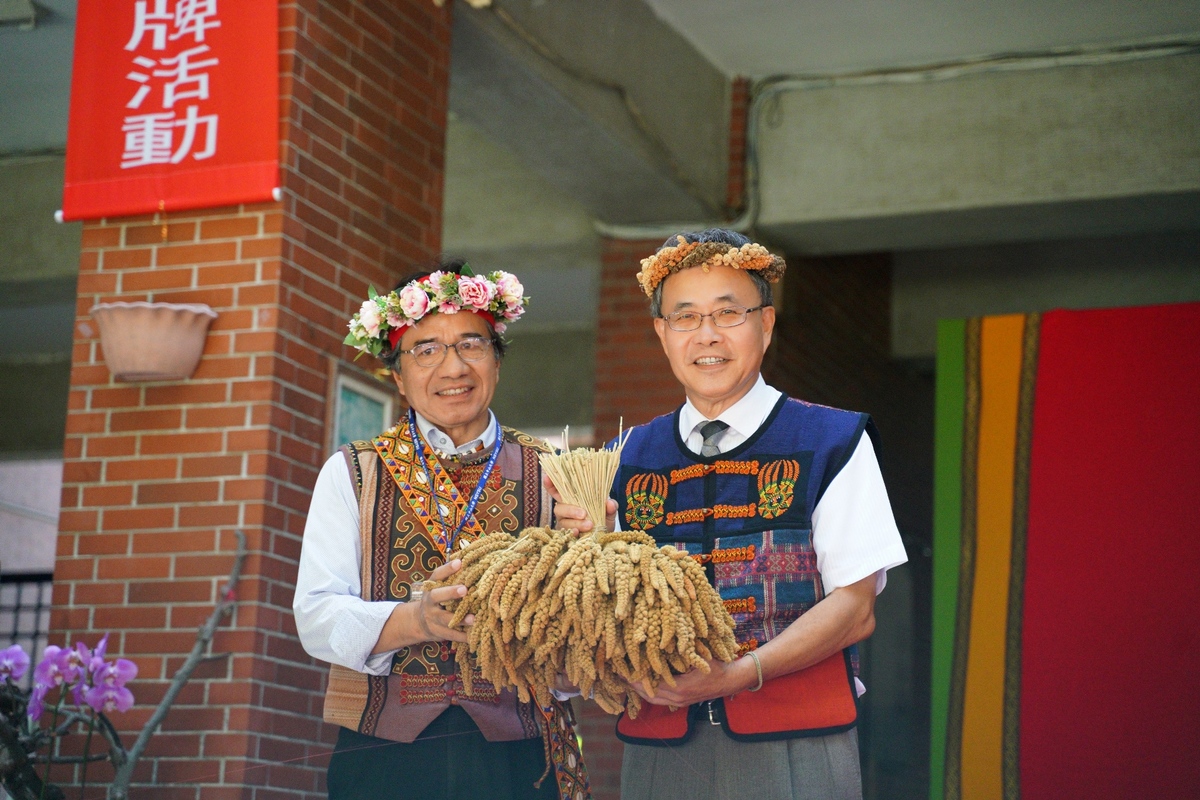
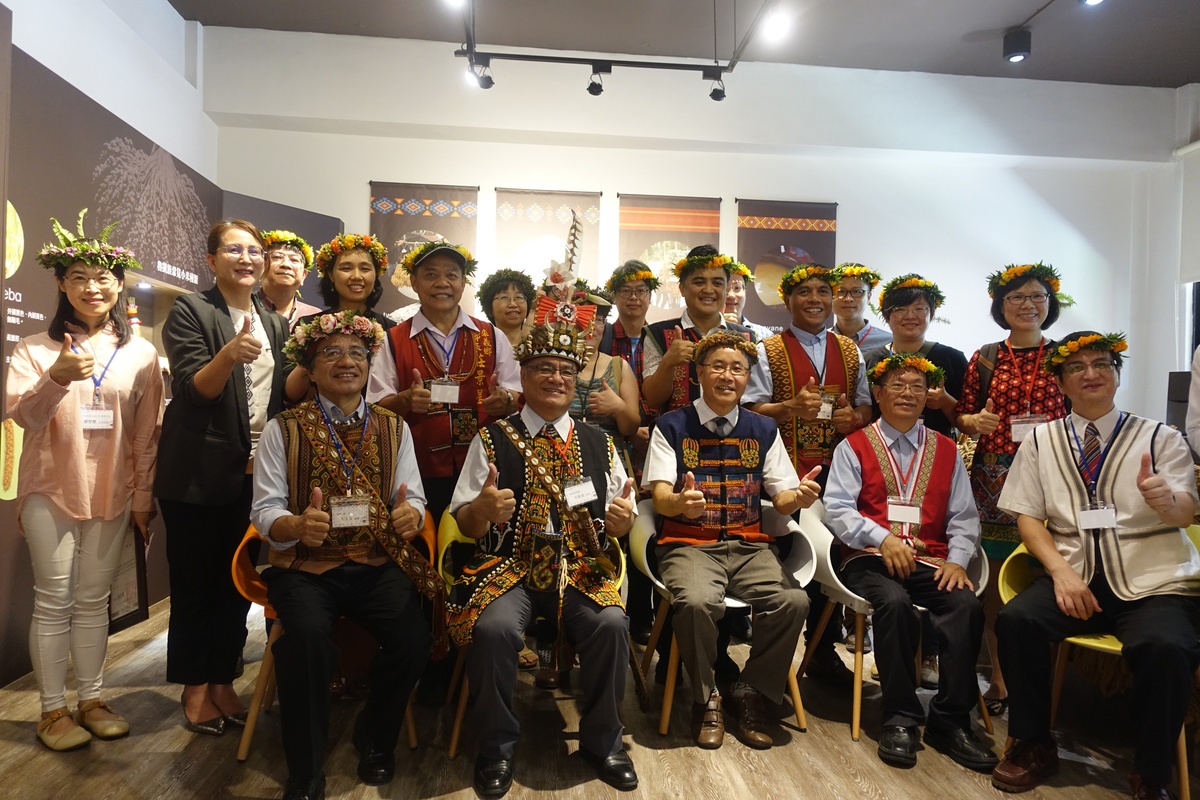
Taiwan is the cradle of Austronesian languages and the origin of the Austronesian peoples. The South is a major concentration of indigenous villages in Taiwan. The Center for Austronesia Social and Cultural Development, established at National Sun Yat-sen University was officially opened with NSYSU President Ying-Yao Cheng, officials of the Ministry of Education and the Council of the Indigenous Peoples, and mayors of indigenous villages as witnesses. A village elder conducted a traditional ceremony to ward off evil spirits from the Center before the guests could enter. Because of the influence of Western religions, this traditional indigenous ceremony faded away several decades ago, thus, reviving this custom at the University was also important from the perspective of cultural preservation.
Besides the Center for Austronesia Social and Cultural Development, NSYSU established the Indigenous Students Resources Center to strengthen the indigenous students’ identification with their tribe, village, and culture. Both Centers are located on the second floor of the building of the College of Social Sciences. To illustrate the diversity of indigenous peoples’ life, geography, agriculture, and creativity, millet, grown by the Rukai peoples, one of the 15 indigenous groups of Taiwan, was chosen as the leading motif of the opening ceremony. Assistant Professor Shih-Hui Liu of the Department of Biological Sciences donated specimens of millet to the Center, collected during one of her research projects, with the aim to promote the material culture of the indigenous peoples of Taiwan.
According to anthropological research, Austronesian people speak over 1300 languages and inhabit regions around the Pacific Ocean: Taiwan, Hainan Island, Southern Vietnam, the Philippines, the Malay Archipelago, as far east as the Easter Island off the west coast of South America, as far west as Madagascar off the west coast of the African continent, and as far south as New Zealand. The location of the Center is significant to the Austronesian peoples’ culture and society: Taiwan is the origin of the Austronesian peoples and its south part is the area with the most indigenous villages in the country, and finally, the NSYSU campus is surrounded by the mountains and the ocean.
President Ying-Yao Cheng indicated that in recent years Taiwan has been actively engaging in extensive exchange with other countries with the Austronesian population, in such areas as trade, business, agriculture, healthcare and technology. He emphasized the need for and importance of the promotion and research on the Austronesian peoples. As a noted research university, NSYSU advocates the human rights, education and cultivation of the indigenous peoples, and is devoted to the revitalization of their culture. The Center for Austronesia Social and Cultural Development and the Indigenous Students Resources Center will thus build their capacity to engage in developing, reviving, and passing on the culture of indigenous villages.
Director of the Center for Austronesia Social and Cultural Development Professor Sasala Taiban emphasized that people are becoming more and more aware of the importance of the research on the indigenous peoples of Taiwan and other regions with the Austronesian population. The mission of the Center for Austronesia Social and Cultural Development is the research and integration of the Austronesian cultures and guidance for indigenous students by planning diversified courses. The Center is to become a leader among the Austronesian regions in the studies in such areas as international relations, marine studies, culture, language, music, and arts.
NSYSU has been studying the development of the society and culture of the indigenous peoples, and, since its establishment, cultivated many professionals representing different indigenous groups. Last year, a new program – Master of Indigenous Studies in Sociology was established at the Department of Sociology. This year, the program has closely cooperated with the surrounding indigenous villages, promoting local innovation and USR projects, and has also organized an event promoting Rukai culture together with the Council of the Rukai People (Kadaenganeta ka Ngungadrekai) to encourage scholars of different fields to invest in the social development and practice in the indigenous villages. There are 64 indigenous students at the University studying for 10 different majors, including sociology, education, management, and arts at NSYSU. They represent over 10 different indigenous groups, mostly Paiwan, Rukai, Amis, and Atayal.
Besides the Center for Austronesia Social and Cultural Development, NSYSU established the Indigenous Students Resources Center to strengthen the indigenous students’ identification with their tribe, village, and culture. Both Centers are located on the second floor of the building of the College of Social Sciences. To illustrate the diversity of indigenous peoples’ life, geography, agriculture, and creativity, millet, grown by the Rukai peoples, one of the 15 indigenous groups of Taiwan, was chosen as the leading motif of the opening ceremony. Assistant Professor Shih-Hui Liu of the Department of Biological Sciences donated specimens of millet to the Center, collected during one of her research projects, with the aim to promote the material culture of the indigenous peoples of Taiwan.
According to anthropological research, Austronesian people speak over 1300 languages and inhabit regions around the Pacific Ocean: Taiwan, Hainan Island, Southern Vietnam, the Philippines, the Malay Archipelago, as far east as the Easter Island off the west coast of South America, as far west as Madagascar off the west coast of the African continent, and as far south as New Zealand. The location of the Center is significant to the Austronesian peoples’ culture and society: Taiwan is the origin of the Austronesian peoples and its south part is the area with the most indigenous villages in the country, and finally, the NSYSU campus is surrounded by the mountains and the ocean.
President Ying-Yao Cheng indicated that in recent years Taiwan has been actively engaging in extensive exchange with other countries with the Austronesian population, in such areas as trade, business, agriculture, healthcare and technology. He emphasized the need for and importance of the promotion and research on the Austronesian peoples. As a noted research university, NSYSU advocates the human rights, education and cultivation of the indigenous peoples, and is devoted to the revitalization of their culture. The Center for Austronesia Social and Cultural Development and the Indigenous Students Resources Center will thus build their capacity to engage in developing, reviving, and passing on the culture of indigenous villages.
Director of the Center for Austronesia Social and Cultural Development Professor Sasala Taiban emphasized that people are becoming more and more aware of the importance of the research on the indigenous peoples of Taiwan and other regions with the Austronesian population. The mission of the Center for Austronesia Social and Cultural Development is the research and integration of the Austronesian cultures and guidance for indigenous students by planning diversified courses. The Center is to become a leader among the Austronesian regions in the studies in such areas as international relations, marine studies, culture, language, music, and arts.
NSYSU has been studying the development of the society and culture of the indigenous peoples, and, since its establishment, cultivated many professionals representing different indigenous groups. Last year, a new program – Master of Indigenous Studies in Sociology was established at the Department of Sociology. This year, the program has closely cooperated with the surrounding indigenous villages, promoting local innovation and USR projects, and has also organized an event promoting Rukai culture together with the Council of the Rukai People (Kadaenganeta ka Ngungadrekai) to encourage scholars of different fields to invest in the social development and practice in the indigenous villages. There are 64 indigenous students at the University studying for 10 different majors, including sociology, education, management, and arts at NSYSU. They represent over 10 different indigenous groups, mostly Paiwan, Rukai, Amis, and Atayal.
Click Num:
Share
